I have a model SessionCategory which is similar to the following:
from django.db import models
from django.utils.text import slugify
class SessionCategory(models.Model):
name = models.CharField(max_length=255, unique=True)
name_slug = models.CharField(max_length=255, null=True)
def save(self, *args, **kwargs):
if not self.name_slug:
self.name_slug = slugify(self.name)
super().save(*args, **kwargs)
So the name_slug field, which I'd like to add, is a slugified version of the name field.
I've run the following data migration:
from __future__ import unicode_literals
from django.db import migrations, models
def generate_name_slugs(apps, schema_editor):
SessionType = apps.get_model('lucy_web', 'SessionType')
for session_type in SessionType.objects.all():
session_type.save()
class Migration(migrations.Migration):
dependencies = [
('lucy_web', '0163_auto_20180627_1309'),
]
operations = [
migrations.AddField(
model_name='sessioncategory',
name='name_slug',
field=models.CharField(max_length=255, null=True),
),
migrations.RunPython(
generate_name_slugs,
reverse_code=migrations.RunPython.noop),
]
However, if I check the database afterward, the name_slug fields are all null:
I've also reversed the migration and re-run it setting a trace (import ipdb; ipdb.set_trace()) in the overridden save() method, but it didn't cause Python to drop into the debugger, confirming that that method is not called.
Why is the overridden save() method not getting called? Do I have to replicate the code in the generate_name_slugs function?
